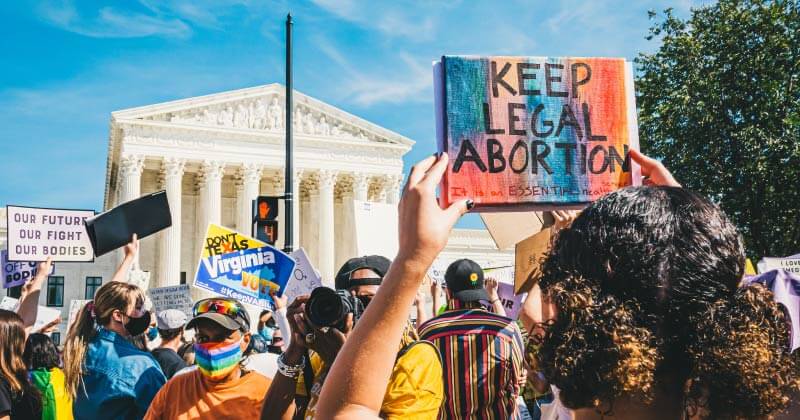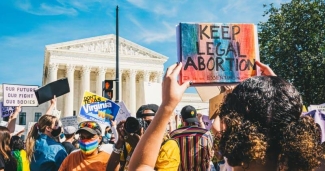Supreme Court Abortion Decision Violates Women’s Fundamental Health Rights and Increases Inequities

Today’s Supreme Court decision Dobbs vs. Jackson Women’s Health Organization will restrict women’s access to abortion, a procedure that the United Nations Human Rights Committee recognizes as a fundamental human right.
Migrant and immigrant women already encounter numerous and overlapping barriers to access basic reproductive care. Ineligibility for health insurance, cultural differences and taboos, language barriers, transportation, poverty, migration, and much more prevent women from accessing the pregnancy health care they need. The closure of rural hospitals across the US, a shortage of maternity care providers like OB/GYNs, and state-level restrictions on abortion care have continued to eroded access to quality care for abortion and other pregnancy care for migrants and immigrants. The Supreme Court decision only pushes women further away from the ability to get the care they need, when they need it.
“Accessibility to quality health care, including basic reproductive care like abortion, is a human right,” said Karen Mountain, MBA, MSN, RN, Chief Executive Officer for Migrant Clinicians Network. “This is a slap in the face of equality and a fundamental blow to women’s basic rights. Women of means – those with a higher income -- will be able to determine their reproductive rights. It is the most vulnerable who will bear the burden of this tragic Supreme Court decision.”
Trigger laws will quickly change the reproductive care landscape across the US, creating sanctuary areas where women have better access to abortion, and large swaths of the country where women will be unable to get care even in the case of rape. Again, these restrictions will only increase inequities in accessing abortion care, as low-income women struggle to find and travel to abortion care, while higher-income women can afford time off of work and travel costs.
Migrant Clinicians Network has been working for decades to remove barriers to health care. This ruling erects taller barriers and will undoubtedly lead to significant suffering for primarily low-income people of color who cannot access the care they need. Yet, we will continue the work – because people who are pregnant need access to high-quality care, regardless of whether they are migrants, immigrants, or asylum seekers, regardless of income, immigration status, employment status, or geographic location.
Resources:
Our Bodies Our Selves has an extensive list of resources including sites to find abortion care.
The Safe Abortion app, from Hesperian Health Guides, helps you learn more about abortion options, and is available in numerous languages including Spanish.
Ineedana.com offers assistance in finding an abortion, in English and Spanish.
- Log in to post comments





